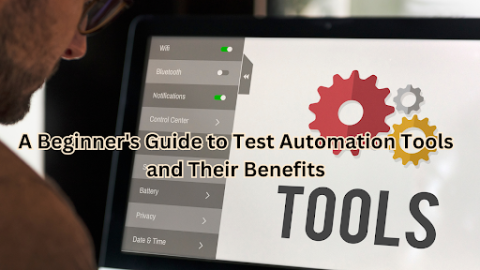HR teams face constant pressure to manage time-consuming tasks like payroll and compliance, leaving little room for strategic work. Manual processes create inefficiencies, often leading to delays and errors.
Did you know that 84% of HR professionals report regularly feeling stressed? This is mainly due to the repetitive nature of many HR tasks.
By automating routine tasks, HR teams can reclaim precious time, reduce errors, and improve overall workflow. Automation also helps HR professionals stay compliant with regulations. Automation is the future of HR, simplifying processes, boosting efficiency, and helping HR teams to focus on strategic growth.
In this blog, we’ll explore how automation can help HR teams save valuable time, tackle common challenges, and make processes much easier for HR professionals.
Key Challenges HR Teams Face
Managing common HR processes like payroll, employee engagement, and compliance risks can be incredibly time-consuming. Let’s understand some of the common challenges that you might encounter:
1. Payroll processing delays
Payroll processing is a core HR function, and any delays or inaccuracies can disrupt employee satisfaction and compliance with regulations. Did you know each payroll error can cost your company approximately $291? However, manual payroll processing is a complex endeavor and may be time consuming.
Here’s what leads to payroll processing delays:
- Manual Calculation of Deductions: Time-consuming and prone to errors, leading to delays in processing.
- Employee Time Tracking Issues: Inaccurate timesheets or missed clock-ins can cause payroll delays.
- Data Entry Errors: Mistakes in entering employee information can disrupt payroll schedules.
- Payroll Approval Bottlenecks: Manual approvals can slow down the payroll process.
- Tax Calculation Mistakes: Manual calculations for tax deductions can lead to costly errors and delays.
To learn the best ways to manage payroll, check out our blog, “Master Payroll Like Never Before”.
2. Compliance Risks and Multi-State Tax Issues
Staying compliant with the laws and tax regulations can be overwhelming for HR teams, especially when managing employees across multiple states. Mistakes in compliance can lead to legal complications, fines, and additional administrative work.
Here are some common compliance challenges you may face without automation:
- Tracking State-Specific Tax Rates: Variations in tax rates across states make accurate calculations difficult without automated tools.
- Overlooking Local Labor Laws: Different states have unique labor laws that HR must constantly monitor to stay compliant.
- Incorrect Tax Withholdings: Manual tax calculations often lead to errors in withholding rates, risking penalties.
- Time-Consuming Audits: Compliance audits can become a lengthy and stressful process without proper automation in place.
3. Lacks in Employee Engagement
Employee engagement is among the most crucial aspects of human resource management. 33% of employees leave their jobs due to poor employee engagement. When HR teams are overwhelmed with administrative tasks, employee engagement often takes a backseat.
Here’s why employee engagement suffers when HR professionals work manually:
- Lack of Time for Employee Feedback: HR’s focus on paperwork leaves little time to gather or act on employee feedback.
- Limited Recognition and Rewards: Without automation, it’s harder to track achievements and deliver timely recognition.
- Delayed Onboarding Processes: Long and inefficient onboarding can affect new hires’ engagement and their first impression of the company.
- Inconsistent Communication: Manual processes can lead to poor communication, making employees feel disconnected.
While the list is extensive, these are just a few of the challenges that HR professionals face on a daily basis. Automation greatly helps solve these challenges. Let’s explore how companies are successfully automating HR processes.
How Companies are Automating HR Successfully
Automation has truly transformed human resource management. By adopting specialized solutions, organizations can reduce manual tasks, minimize errors, and create more efficient workflows.
Here’s how companies are successfully automating key HR functions for better performance:
1. Integrated HRMS Solutions
Integrated HRMS solutions are revolutionizing how companies handle their HR processes by centralizing key functions on one platform. According to 70% of the business leaders HRMS solutions speed up 45 minutes to 3 hours on repetitive tasks.
With an integrated HRMS, companies can automate core HR functions such as payroll processing, leave management, and employee performance tracking. .
How Automation Helps:
Here’s how an HRMS with automation helps:
- Centralized Data Management: All employee data is stored in one system, making it easier to access and manage information quickly.
- Automated HR Workflows: Processes such as time-off requests, performance reviews, and payroll calculations are streamlined, saving HR teams valuable time.
- Improved Decision-Making: Real-time data and reporting features allow HR teams and managers to make informed decisions quickly, based on the latest employee information.
By adopting integrated HRMS solutions, companies can drastically cut down the required time for common HR processes.
Industry Insights:
REI Systems is a leading IT company established in 1989. The company greatly benefitted by implementing automated HRMS from Keka. The company reported that Keka’s processes were way too simple as compared to others.
Here’s how Keka HRMS helped them improve overall efficiency of HR processes:
- There was a 50% reduction in time and effort due to automatic processes
- Smooth performance management process of Keka HRMS helped reduce the required time from 2 days to 2 hours.
- There was a complete change from manual to automated human resource management.
To learn more about the features to look for in an HRMS solution, check out our blog, “HRMS System Features and Requirements: A Must-Have Guide”.
2. Automated Payroll & Real Time Attendance Tracking
Payroll is indeed a time consuming process. Manually processing payroll for even a mid-sized company takes approximately 12 hours from start to finish! Companies using automated payroll processing systems can greatly reduce this time. Processing payroll is closely related to attendance of employees. Incorrect recording of attendance can delay payroll processing.
How Automation Helps:
Here’s how automation improves payroll processing and attendance tracking:
- Eliminates Manual Calculations: Payroll automation automatically calculates salaries, bonuses, deductions, and overtime, minimizing the risk of human errors and reducing the time spent on manual calculations.
- Improved Accuracy and Consistency: Automation ensures that payroll is processed consistently every pay period, reducing discrepancies and ensuring that employees are paid accurately.
- Real-Time Pay Information: Automated systems allow employees to access real-time payroll information, including payslips, tax deductions, and benefits, increasing transparency and trust.
- Instant Pay Adjustments for Errors: If discrepancies are found in an employee’s clock-in or leave data, payroll automation allows for real-time corrections, minimizing delays.
- Automated Attendance Tracking: Automated systems track employee attendance, clock-in/clock-out times, and overtime in real time, ensuring accurate payroll calculations and reducing the risk of attendance-related errors.
Industry Insights:
Cloud Desk, a leading IT service provider was greatly benefitted by using automation-driven HRMS solution. The company used Keka to improve their HR processes.
With automation in payroll management company was able to:
- Easily integrated attendance with payroll management
- Improve data migration and cross-entity data comparison
- Centralize their helpdesk for employees in different locations.
To learn how to save time with automated payroll software, check out our blog, “6 Ways to Save Time with Automated Payroll Software”.
3. AI-driven Compliance Management
AI-driven compliance management is transforming how HR teams ensure adherence to regulatory standards.
How AI and Automation Helps:
Here’s how AI and automation makes compliance management easier:
- Continuous Legal and Tax Updates: AI tools automatically monitor and integrate changes in federal, state, and local tax laws and labor regulations.
- Automatic Risk Detection and Alerts: AI scans employee data for compliance risks, such as misclassifications, incorrect overtime, or missed deadlines. It also sends real-time alerts to HR teams.
- Easy Document Management and Storage: AI organizes and categorizes compliance documents like tax filings and employee contracts, ensuring they are stored correctly and easily accessible for audits.
- Pre-Built Compliance Audits: With AI, HR teams can run automated audits on company processes and employee data to identify potential compliance issues. The system automatically flags discrepancies and generates reports.
- Real-Time Benefits Compliance Monitoring: AI ensures that employee benefits—like health insurance, retirement plans, and paid leave—are compliant with regulatory requirements. It monitors changes in benefits laws and adjusts company plans accordingly without manual intervention.
- Predictive Analytics for Future Compliance Issues: AI uses historical data and trends to predict potential compliance risks, such as overtime violations or misclassifications.
Industry Insights:
Value Mentor is a company that provides services across 7 countries. Needless to say, proper compliance management is a key determinant of the company’s success. The company implemented Keka for automation, and it significantly contributed to their success.
By introducing automation in HR processes the company was able to:
- Store all employee documentation in a secured, centralized and digital platform including contracts, contributing towards better compliance.
- Overhaul expense management system, introduce automated ticketing, and status tracking.
- Track attendance of remote and on-field employees easily to compensate them accordingly.
Explore how automation with Keka can help you meet all the compliance requirements. Book a quick consultation here.
Conclusion
As we observed from the industry insights, several leading companies from various industries are reducing manual work through automation. For example, REI systems is a leading IT company that is using integrated HRMS. Cloud Desk is another leading IT service provider that has automated its payroll and is using an attendance tracking system. Similarly, Value Mentor is a cyber security firm that is using automation for AI driven compliance.
Keka HR simplifies and automates all your HR processes in one platform. Trusted by companies like Value Mentor, Cloud Desk, and REI Systems, Keka improves recruitment, payroll and compliance.
Want to explore how automation can help your HR team? Book a quick consultation here.



